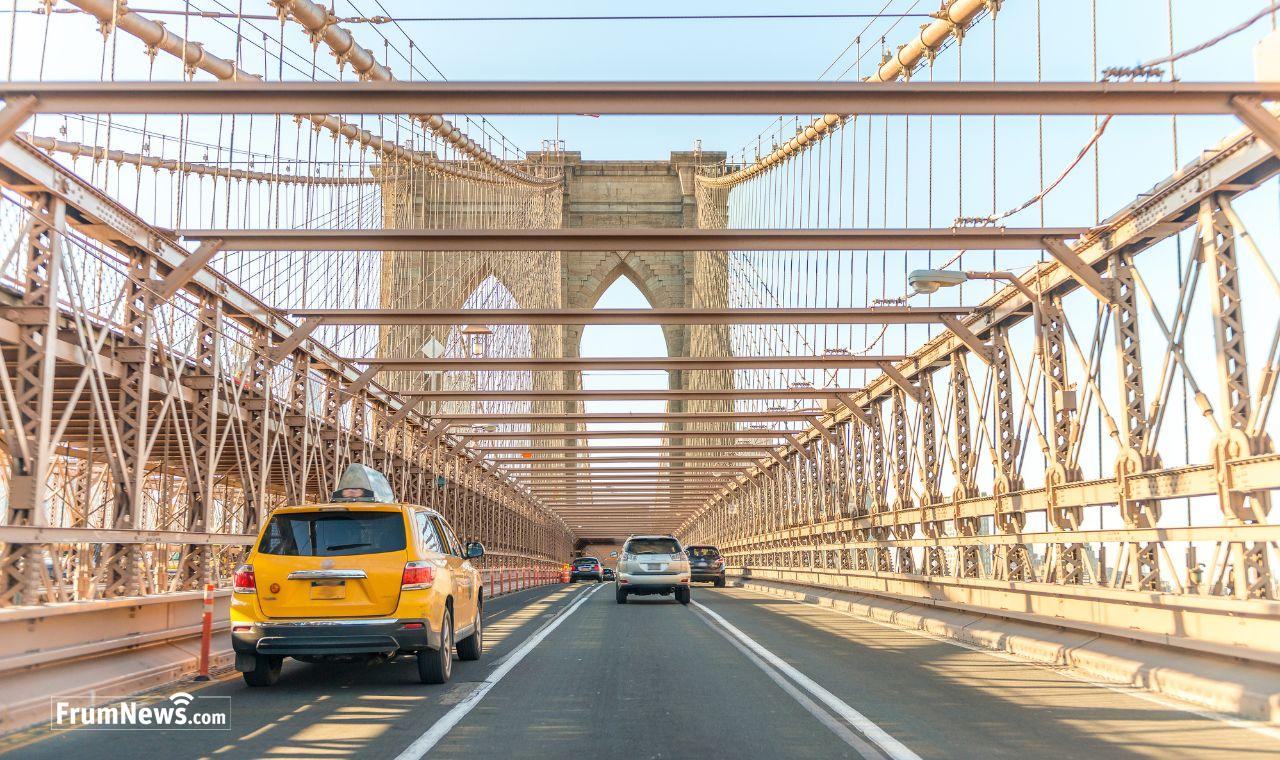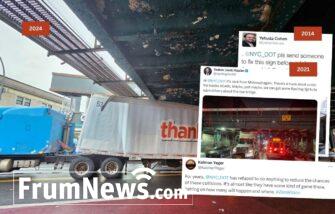“Bankrupting Commuters” – New Bipartisan Bill Wants To Kill NYC Congestion Pricing

New York City plans to toll commuters through lower and midtown Manhattan. Based on similar congestion pricing schemes in major cities like London, Stockholm and Singapore, the plan is to reduce congestion on Manhattan's busy streets by tolling drivers who enter the Central Business District (lower and Midtown Manhattan below 60th Street).
By FrumNews.com
New York City plans to toll commuters through lower and midtown Manhattan starting January 5th, 2025. Based on similar congestion pricing schemes in major cities like London, Stockholm and Singapore, the plan is to reduce congestion on Manhattan’s busy streets by tolling drivers who enter the Central Business District (lower and Midtown Manhattan below 60th Street).
Last week, the MTA’s board of directors set the ‘new reduced’ toll rate for congestion pricing at $9. Cars and small commercial vehicles will be paying with E-ZPass will be charged $9. Drivers will be charged no more than once a day. Larger vehicles will pay more to enter the zone. Taxis, black car passengers and customers of Uber, Lyft or Revel will pay significantly less angering every-day car owners.
A new bipartisan bill from Rep. Nicole Malliotakis (a New York Republican representing Staten Island and South Brooklyn) and Rep. Josh Gottheimer (a New Jersey Democrat representing Bergen County) aims to kill the plan to toll commuters in the lower and midtown Manhattan.
If passed, the bill would block the city from implementing the new toll by amending the Intermodal Surface Transportation Efficiency Act of 1991 to prohibit congestion or cordon pricing in a value pricing program and for other purposes. (The 1991 Act declared that it is U.S. policy to develop national intermodal transportation.)
“The MTA’s Congestion Pricing Plan is nothing more than a cash grab that will take more money from commuters and shift traffic from Manhattan to the outer boroughs, increasing pollution in my district, particularly in minority communities,” Rep. Malliotakis said. “I’m proud to join my colleague in introducing this legislation to not only prohibit this cash grab from coming to fruition, but show there will continue to be a united front on the city, state and federal levels should the MTA move forward with this first in the nation plan. The MTA’s war on cars is bankrupting commuters, and we will continue to use every legal and legislative tool we have to stop it.”
“For years, hardworking families, nurses, teachers, law enforcement, small businesses, and commuters from Jersey and New York have spoken in unison: don’t raise our taxes, don’t pollute our children, and don’t whack us with the outrageous Congestion Tax,” Rep. Gottheimer said. “The mismanaged MTA’s Congestion Tax is nothing but a shameless cash grab that will lead to more traffic, pollution, and financial heartache for Jersey and New York families. That’s exactly why we’re introducing legislation at the federal level to stop it.”
Last year, Malliotakis successfully added language prohibiting federal funding from being used to implement congestion pricing to the Transportation, Housing and Urban Development (THUD) Appropriations bill, however, the provision was taken out by Senate Majority Leader Chuck Schumer during negotiations in the Senate.
Other hurdles to implementing Congestion pricing stand in the way, such as the lawsuit brought by New Jersey Governor Phil Murphy over the plan. The Governor is arguing that congestion pricing should be blocked because it will result in more traffic and pollution in New Jersey.
“This is far from over and we will continue to fight this blatant cash grab. The MTA’s actions today are further proof that they are determined to violate the law in order to balance their budget on the backs of New Jersey commuters.” Gov. Murphy said in a statement, “We will continue to avail ourselves of every option in order to protect residents on this side of the Hudson from an unfair tolling scheme that discriminates against New Jerseyans, especially lower and middle-income drivers.”
Read Next trending_flat
 New York & New Jersey
New York & New Jersey




Post the first comment!